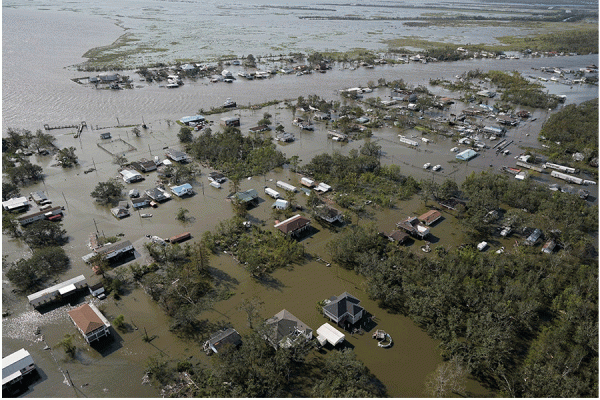In the last decade alone, south Louisiana has been hit by five hurricanes, leaving in their wake millions of dollars in property damage and an immeasurable emotional toll. In the aftermath of a hurricane, the priority for decision makers is to return the affected community to its pre-disaster level of functioning.
University of New Orleans engineering professor Elnaz Safapour, whose research includes disaster risk management and the recovery of vulnerable communities, wants to help communities assess and improve their storm recovery plans.
Safapour has been awarded a $160,000 grant from the Louisiana Board of Regents to develop a best practice protocol for pre-and post-hurricane recovery activities.
“Recovery is a complex process further complicated by a given community’s vulnerability to hazards and disasters—and rural communities are particularly vulnerable,” said Safapour who has been involved in different federal and state research projects on various construction and reconstruction topics, including critical infrastructure resilience.
Rural communities normally struggle with challenges and limitations even before a disaster, preventing the affected rural areas from successfully recovering from hurricanes in a timely manner, Safapour said.
According to 2021 Louisiana population estimates, 724,014 out of 4.6 million people live in rural communities consisting of families with low-income, Safapour said.
“Many rural communities have serious challenges year-round and grapple with financial, social, environmental and educational issues, even outside the impacts of a disaster,” she said.
As part of her research, Safapour plans to collect data from people who live in rural areas and were affected by Hurricane Ida, a Category 4 storm that brought 150 mph winds as it ravaged many rural Louisiana parishes in 2021.
Her research will also include interviews and data from decision makers and project managers who were actively involved in the recovery processes of rural areas damaged by Ida.
“Our project aims to improve the adaptability and resiliency of rural communities that may be affected by hurricanes,” she said. “This research project is going to minimize the consequences of hurricanes and speed up the recovery process in affected rural areas.”
Safapour said she plans to develop a decision-support system, including an integrated plan for short-term recovery before a hurricane, for decision-makers, authorities and project managers who are responsible for post-hurricane recovery of affected rural areas.
“This decision-support system will help practitioners and project managers prioritize activities and allocation of resources for the success and effectiveness of the post-hurricane recovery process,” Safapour said.






